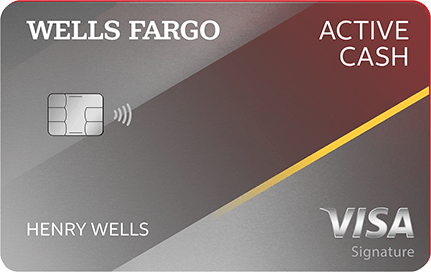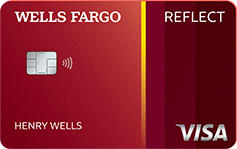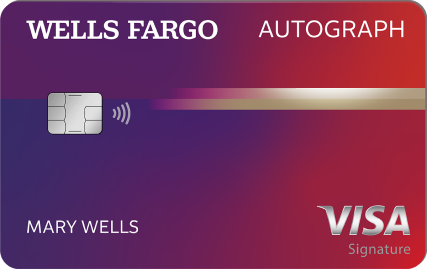
Credit card benefits you're
probably forgetting to use
Credit cards can be more than just a payment method. As credit card companies compete for your business, many offer cards that have various rewards programs as well as a suite of benefits that can provide a lot of value.
Although credit card issuers promote and advertise their cards’ key features like sign-up bonuses or rewards, there are often lesser-known benefits as well. Learn more about the hidden credit card benefits you may be missing out on, including the rewards they earn and potential consumer protections and travel insurances.
Benefits to using a credit card
Credit cards can offer consumers a number of advantages over cash and other payment methods. Most credit cards, especially rewards cards and cash back cards, offer a collection of cardholder benefits. These benefits can help you earn rewards, protect your purchases, and provide peace of mind when traveling.
You can see a card’s benefits by logging into your card account or app and looking for a benefits and offers page. The credit issuer should also have a full “guide to benefits” available for you to review, or you can call customer service to discuss the various perks.
What are some credit card benefits?

Credit card benefits can be broken up into a few main categories:
- Rewards: Cash back credit cards or points/miles programs let cardholders earn rewards on their spending.
- Travel benefits: These include different types of trip insurance and coverage as well as upgraded travel experiences and savings opportunities.
- 0% APR offers on purchases and/or balance transfers: A period without paying interest can provide some wiggle room for paying down debt.
- Consumer protections: Extended warranty coverage, purchase protection, price protection, and other policies can help ensure you get the most out of your purchases.
- Partner discounts and statement credits: Using your card to pay for certain services could unlock savings with these partners.
Depending on the type of card you have, some types of benefits may be more prominent than others. For example, travel rewards credit cards may have more travel-related benefits such as travel insurance, airport lounge access, and no foreign transaction fees. Cards focused on earning everyday cash back rewards may offer general benefits like free credit score monitoring, price protection, return protection, and balance transfer offers.
It’s worth noting that companies will offer unique credit card benefits. What you can expect is that premium credit cards—or those that charge an annual fee—will have a more extensive list of benefits that could provide a higher level of value.
Here’s a closer look at some key credit card benefits and how to take advantage of them.
Cash back rewards
Cash back credit cards allow you to earn a percentage back on your purchases. For example, if a card offers a flat-rate 2% cash back, you’ll get $2 back for every $100 you spend. This is the simplest type of earnings because you’ll earn it automatically and it doesn't matter what type of spending you do.
Other cash back rewards cards offer bonus cash back for spending in certain categories. For instance, a card may offer 3% cash back on groceries, 2% cash back on dining, and 1% back on other purchases. When you have tiered earnings, you may need to be a bit more mindful about using the card for bonus category spending if you want to maximize your rewards.
The last type of cash back rewards may involve bonus categories that rotate quarterly. You may earn 5% on dining from January through March, and then from April to June, the 5% category may be home improvement stores. With these cards, you may have to log into your account to activate your bonus category each quarter. If you forget to do that, you may lose out on the bonus earnings.
Travel rewards
Travel rewards cards let you earn points (sometimes referred to as miles) when you use the card to make purchases. Like cash back cards, there are flat-rate travel rewards, tiered travel rewards, and rotating travel rewards structures.
In addition to earning points, many cards offer travel benefits that may reduce airfare and booking costs, enhance your trip, and provide peace of mind. These can include concierge services, rental car insurance, trip cancellation insurance, or emergency travel assistance. You may also be able to get a statement credit when you pay for Global Entry or TSA PreCheck fee credit, and the card may waive foreign transaction fees.
If you have an airline or hotel credit card, then your card may offer benefits that are specific to air travel or hotel stays. Airline cards sometimes offer priority boarding, a free checked bag, in-flight discounts, and airport lounge access. Hotel cards may offer free hotel stays, room upgrades, late check-out, and other on-site amenities.
Theft and damage protection
Another category of credit card benefits that people sometimes overlook is theft and damage protection on purchases. Consumers may assume that when they buy a high-priced item and it’s stolen or they accidentally drop it, they’ll need to pay for a replacement. However, if you paid for the item with certain credit cards, you may be protected up to a certain amount on that purchase for a set amount of time.
Related to that is an extended warranty benefit. Certain credit cards provide automatic warranty coverage that surpasses what the manufacturer offers. Again, this can help cover you in case you need repairs or replacement parts, but only if you’re aware of the benefit.
Cell phone protection
Given the high cost of cell phones, a credit card that offers cell phone protection can provide some peace of mind. After all, your phone could be one unfortunate drop away from being cracked or damaged. This coverage usually requires that you pay your cell phone bill with the credit card.
Cell phone protection will typically cover damage repair and theft. The issuer will set a coverage limit, and there may be a deductible. You’ll usually have to go through a claims process, including obtaining a repair estimate or filing a police report if your phone is stolen.
0% APR
Some credit cards offer an introductory 0% APR on purchases, balance transfers, or both. This gives cardholders an extended period of time when interest is not charged. Also, introductory 0% APR applies when you first open a new card.
If the introductory no-interest period covers purchases, then for a set period of time, you won’t be charged interest on purchases if you carry a balance. This may be worth considering if you have a large purchase that you want to pay off over the course of a few months, rather than needing to pay it all at once.
On balance transfers, a 0% APR offer can help you move over an existing balance from another card to make more progress paying it down without interest. Most cards do charge a balance transfer fee, but you may still benefit if you’re able to pay off your balance before the end of the 0% interest period.
Partner discounts and statement credits
If you set up auto payments on your card and you rarely log into your account, you could be missing out on cardholder-exclusive offers. Issuers often partner with service providers to provide deals and discounts to cardholders. For example, if you pay for a particular streaming service or rideshare company with your card, you may be eligible to earn a statement credit. Or you may receive access to the upgraded version of a membership for free, for a limited time.
With other cards, you might be offered a list of discounts with partners that you have to activate. For example, you may get $15 off if you spend $100 with a specific restaurant chain or online retailer by a certain date.
Some credit cards also have their own portals that offer discounted prices or the chance to earn cash back on purchases if you shop or book travel via the portal.

Conclusion
Taking the time to research and understand your credit card benefits can help you get more value from your cards. Whether it’s consumer protections, travel-focused perks, or additional ways to earn rewards, credit cards have a number of benefits that can be easily overlooked.
Educational Disclosure: The editorial material on this page is not intended to provide legal, financial, investment, or tax advice. The products or services described may not be appropriate for everyone. For specific recommendations, consider speaking with the appropriate professionals. Wells Fargo is not responsible for and does not endorse any third-party product, service, or recommendation listed in the article above.






